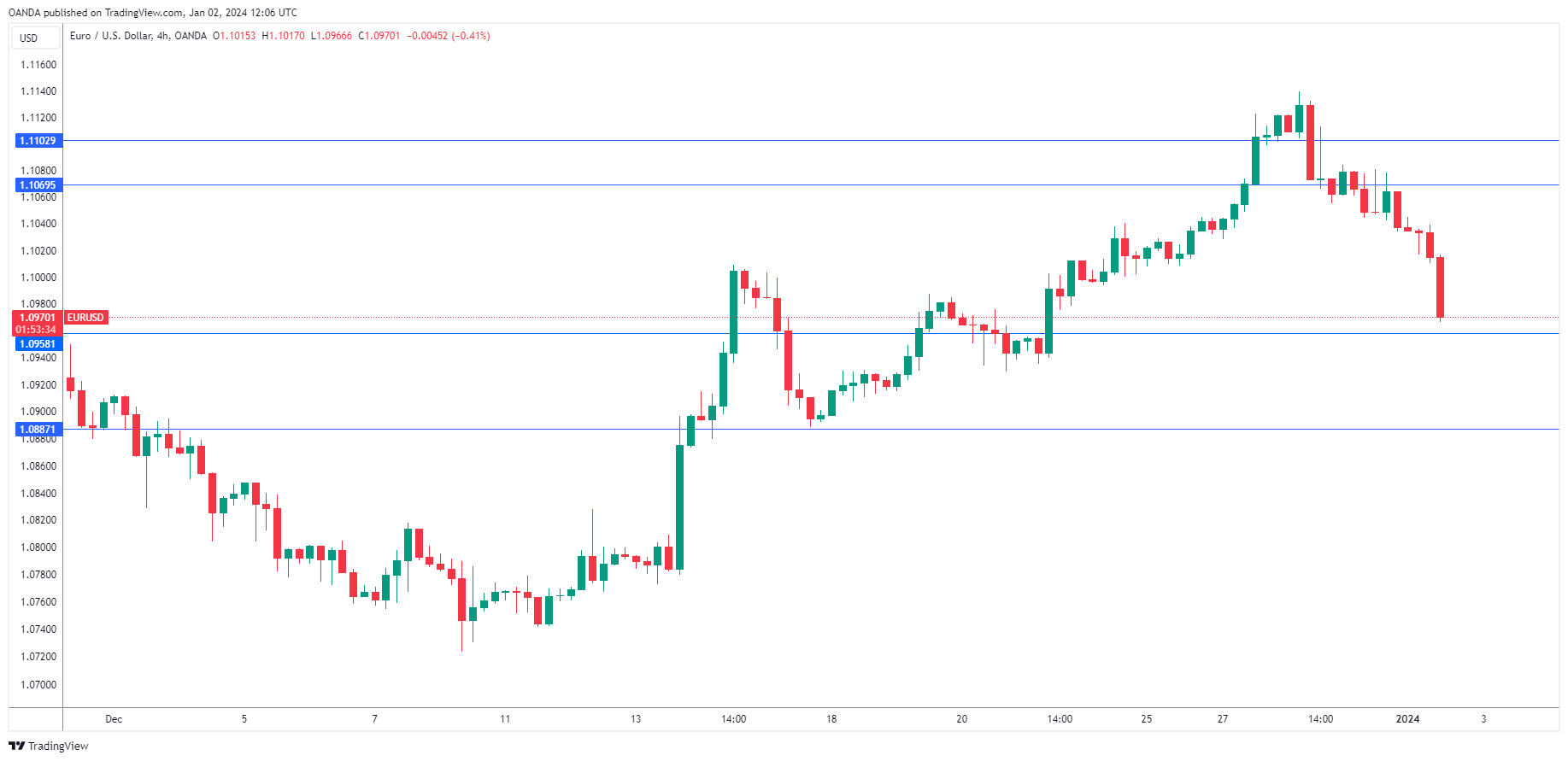- Euro slips below 1.10 line
- German and eurozone manufacturing PMIs contract
The euro is down sharply on Tuesday. In the European session, EUR/USD is trading at 1.0969, down 0.62%. The euro hasn’t posted a gain since Wednesday.
The US dollar has hit a rough patch on market expectations that the Federal Reserve will cut rates up to six times this year and that the current rate-tightening cycle is over. The euro has pummelled the US dollar since November 1, falling 5.3%.
German and Eurozone Manufacturing PMIs Remain in Decline
The New Year started with manufacturing releases from Germany and the eurozone earlier today. German manufacturing PMI was revised to 43.3 in December from a preliminary 43.1, compared to 42.6 in November and above the consensus of 43.1. The Eurozone Manufacturing PMI was also revised upwards to 44.4, up from 44.2 in the preliminary estimate and above the consensus of 44.2. The manufacturing sector in Germany and the eurozone is mired in a prolonged slump and hasn’t shown growth since June 2022. There isn’t much to cheer about but there is hope that the worst of the downturn is behind us as we move into 2024.
Germany and the eurozone will post their inflation reports on Thursday. Last week, Spain posted lower-than-expected inflation numbers. Inflation has eased to 3.2% in Germany and 2.4% in the eurozone, as the ECB’s target of 2% is getting closer. If the data shows that inflation eased in Germany and the eurozone as well, it will put pressure on the European Central Bank to cut rates in the first half of 2024.
ECB President Lagarde has pushed back against rate cuts but she may have to shift her hawkish stance or risk tipping the weak eurozone economy into a recession. If the upcoming inflation reports indicate that inflation continues to fall, we can expect the voices in the ECB calling for looser policy to get louder.
EUR/USD Technical
- There is resistance at 1.1069 and 1.1102
- 1.0958 and 1.0887 are the next support lines